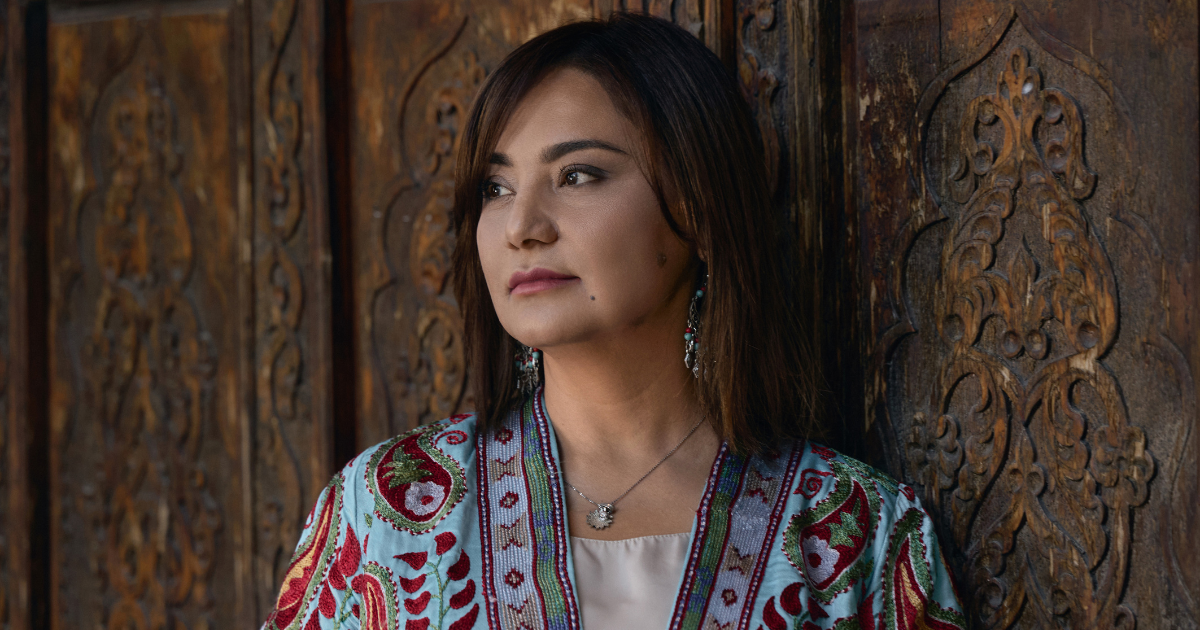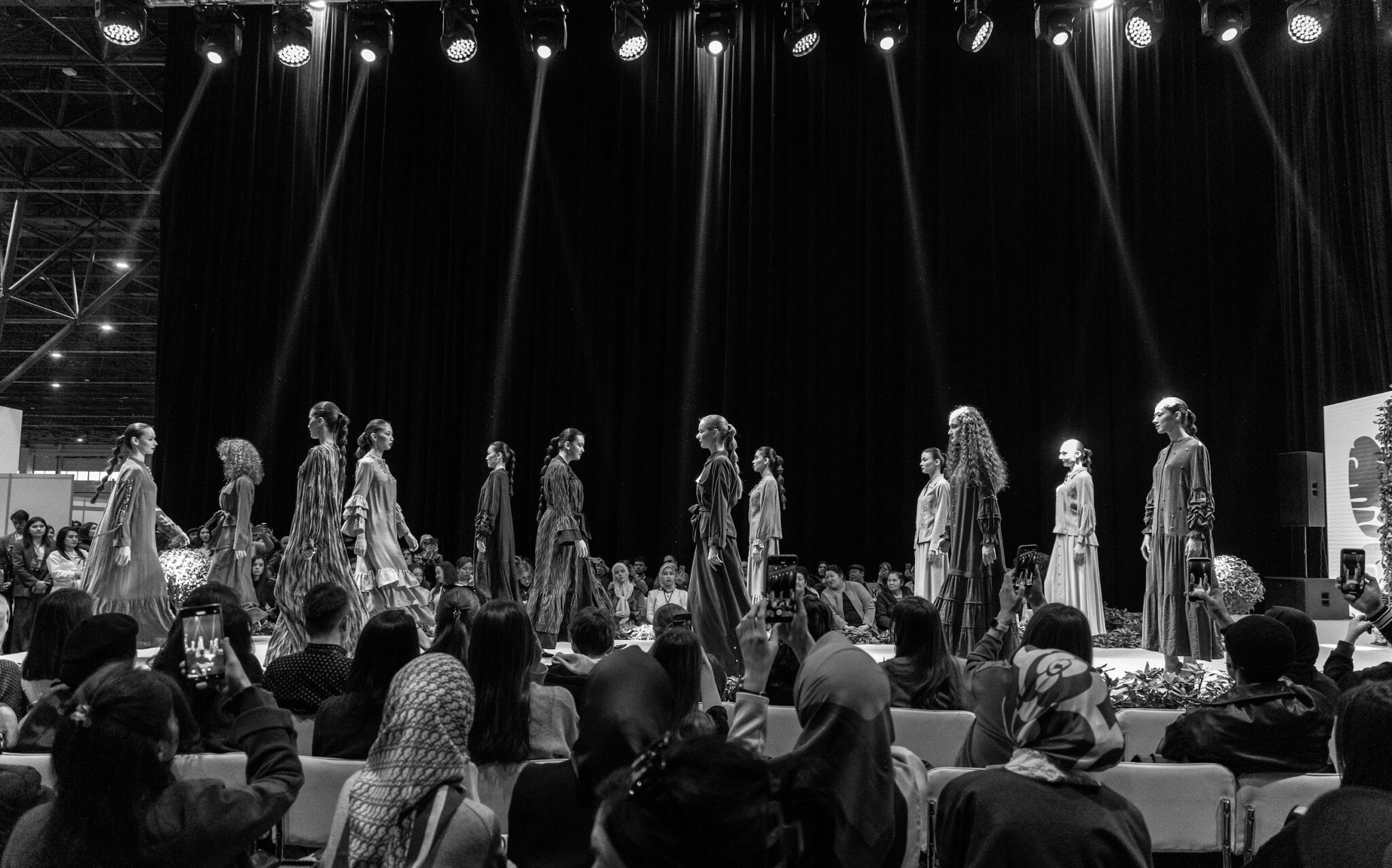Women in creative leadership
Meet three businesswomen leading projects in the creative industry
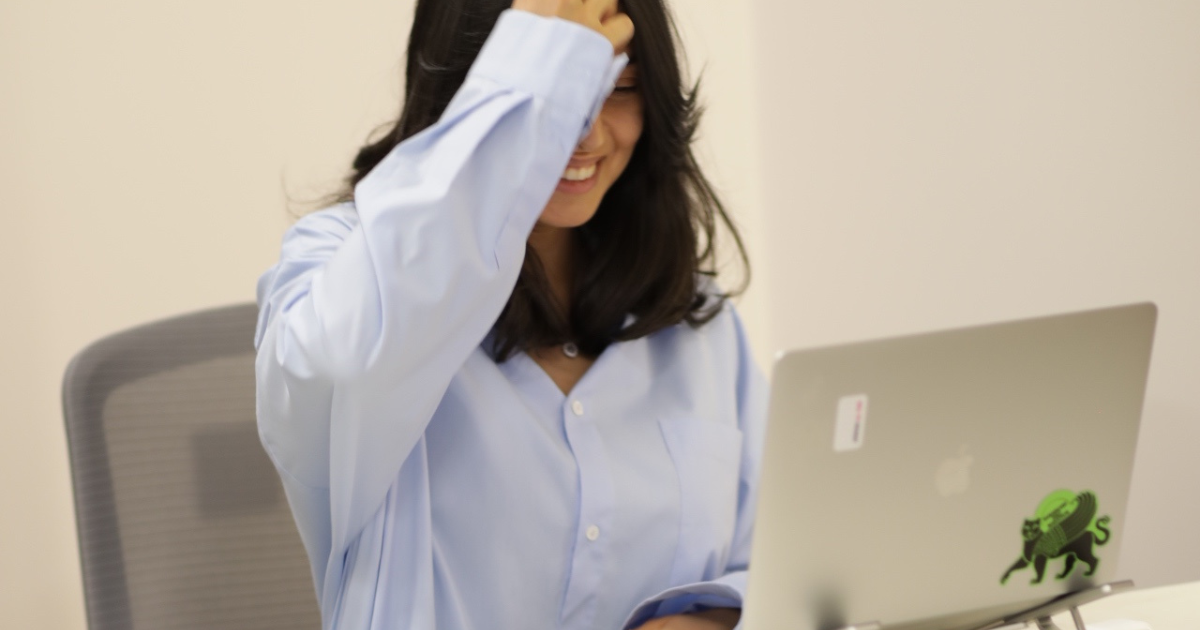
Modern Uzbek society is proving that the patriarchal norms and gender stereotypes of our nation are losing their relevance. Year after year, we see more women in leadership positions, a rarity in the past. Women in Uzbekistan are conquering more and more career peaks, showcasing their talents in every industry. The creative business is no exception—encompassing a spectrum of projects born from intellectual endeavors. This business originates from ideas, bold and unconventional decisions, and fosters creativity and innovation.
Kamila Uzakova
Co-founder, CEO of "Osnova," "ALPHA Education"
Osnova is a career platform for the youth of Uzbekistan.
ALPHA Education is an educational platform in fields such as marketing, HR, PR, management, and other business areas.
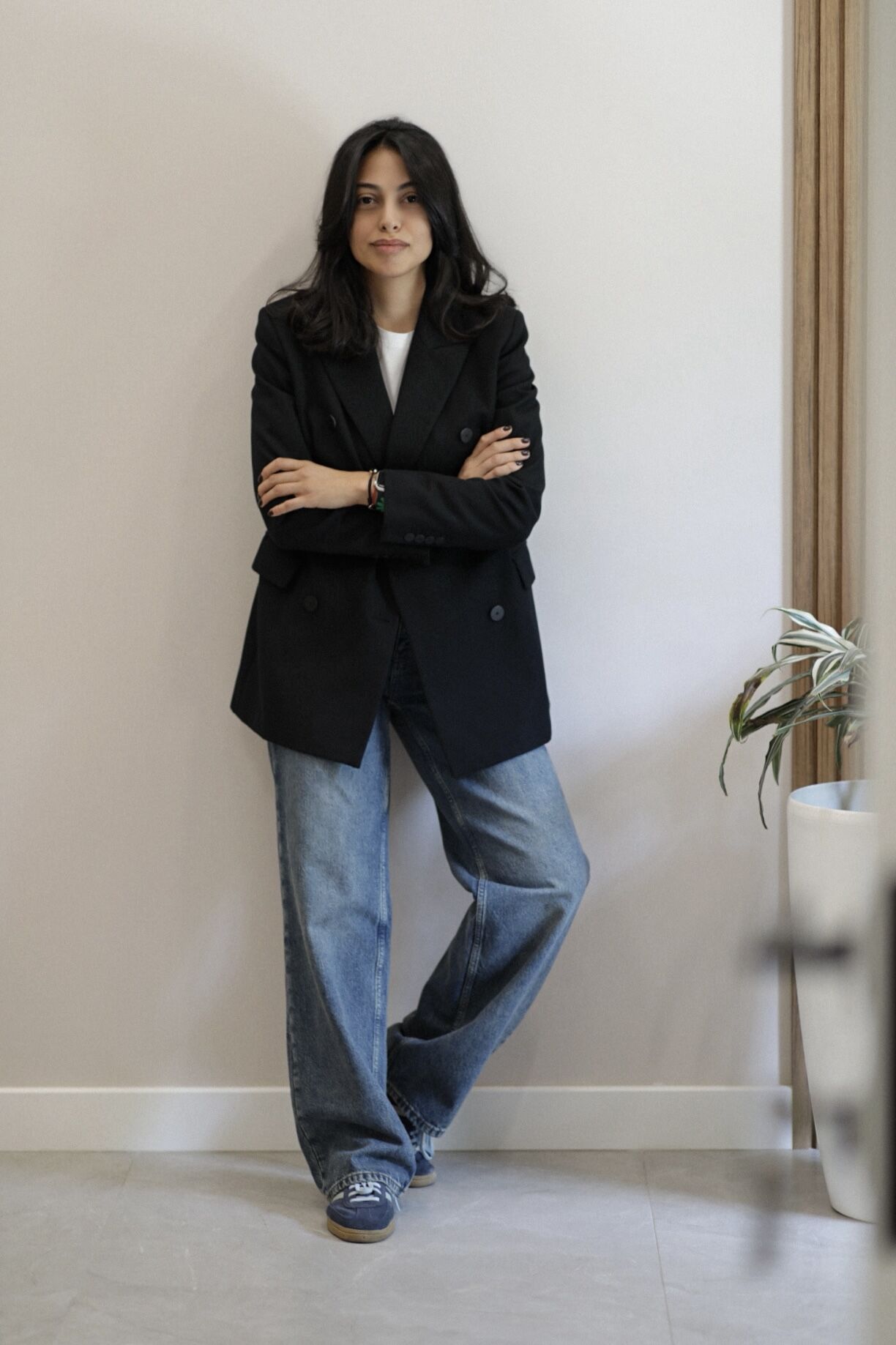
Tell us how you came to run a creative business.
Eight years ago, friends from an advertising agency invited me to join a new educational project. After working for a while in a large state company and realizing it wasn’t for me, I left to join a small team. I quickly understood how important it was for me to implement ideas, influence results, make decisions, and feel that my contribution was significant to the development of the market. Our projects exist because the market needs qualified and competent specialists, and more and more people are seeking a fulfilling career that brings not only income but also joy.
Today, I understand that I have always enjoyed the education sphere. Having worked in this field for so many years, I am convinced that education is the foundation on which everything else is built, and it helps people improve their lives.
How is the creative business in Uzbekistan doing in general? Was it always this way?
Eight years ago, we put in a lot of effort to convey the value of education to the market. Our main activity is adult education, upgrading skills in one project and acquiring a profession in another. Back then, many adults didn’t understand why they needed to study again, pay money, or attend classes after a long workday. Over time, the concept of lifelong learning has become more understandable and even trendy. Graduates of our programs started sharing their experiences with friends and sending their employees to our courses, becoming ambassadors of education in their companies and communities.
In your opinion, what changes are coming to the creative business in Uzbekistan?
The market is dynamic and constantly changing, as are the usual templates. However, the shortage of qualified personnel and the gap between employers’ expectations and actual competencies remain relevant. Our projects aim to help beginners acquire a profession and first experience while helping those already employed to upgrade their skills and remain in demand in a rapidly changing market.
Have you faced gender biases as a woman leading a business?
Yes, I have encountered gender biases and continue to do so. Even in the most successful companies in the world, only about 10% of CEOs are women. Although I firmly believe that leadership is not defined by gender, it is shaped by characteristics that can be present in both men and women.
What has been the most challenging moment in your experience?
The most challenging moments often revolve around feeling unfairly treated. This could manifest in small things, such as when someone greets your male colleagues but not you, or during negotiations when they ask if a decision was approved by "the boss," assuming the boss is a male colleague. The most frightening aspect is that stereotypical attitudes can lead to a false perception of oneself, insecurities, and unfounded fears.
What three things inspire you to keep moving forward?
⁃ People. Business is primarily about people. Partners who believe in the same things you do and share your values; a team that works towards a common goal with you.
⁃ Important and needed projects. Together with my team, we bring ideas to life and create projects that solve market problems and improve people’s lives. We collect stories of people who have been part of our projects and changed their lives for the better. These stories never cease to inspire.
⁃ Development. Every new direction, project, and person along the way brings new experiences and self-awareness, leading to personal growth and new opportunities.
What is the most important advice you would give to women aspiring to lead their own businesses?
I always remember an important rule we hear during flights: "Put your oxygen mask on yourself first before helping others." This is a universal principle that applies to life. It’s essential to objectively assess your strengths and weaknesses, believe in yourself, and strengthen your inner core, which will help you cope with any external pressure. And, of course, surround yourself with people who share your values and views.
What three skills are essential in your profession?
⁃ Strategic thinking—the ability to see prospects, assess opportunities, and anticipate the consequences of decisions.
⁃ Adaptability—the ability to quickly adapt to new conditions, learn new things and think critically.
⁃ Communication—the ability to clearly articulate thoughts and ideas, understand context and emotions, and give and receive constructive feedback.
Does your choice of profession influence your personal life?
In my case, the profession has minimal influence on my personal life. I devote enough time to work, family, friends, sports, travel, and other hobbies. What matters is what we focus on, what drives us, and the decisions we make every day—these ultimately shape and define our lives as a whole.
"I believe we are merely a product of the space, not its foundation. Sometimes it’s helpful to remind yourself that you are just a tiny part of something much greater. This realization helps you view things more simply and live your life in harmony with the world."
Alina Mirzaeva
Managing partner of "Synthesis" advertising agency
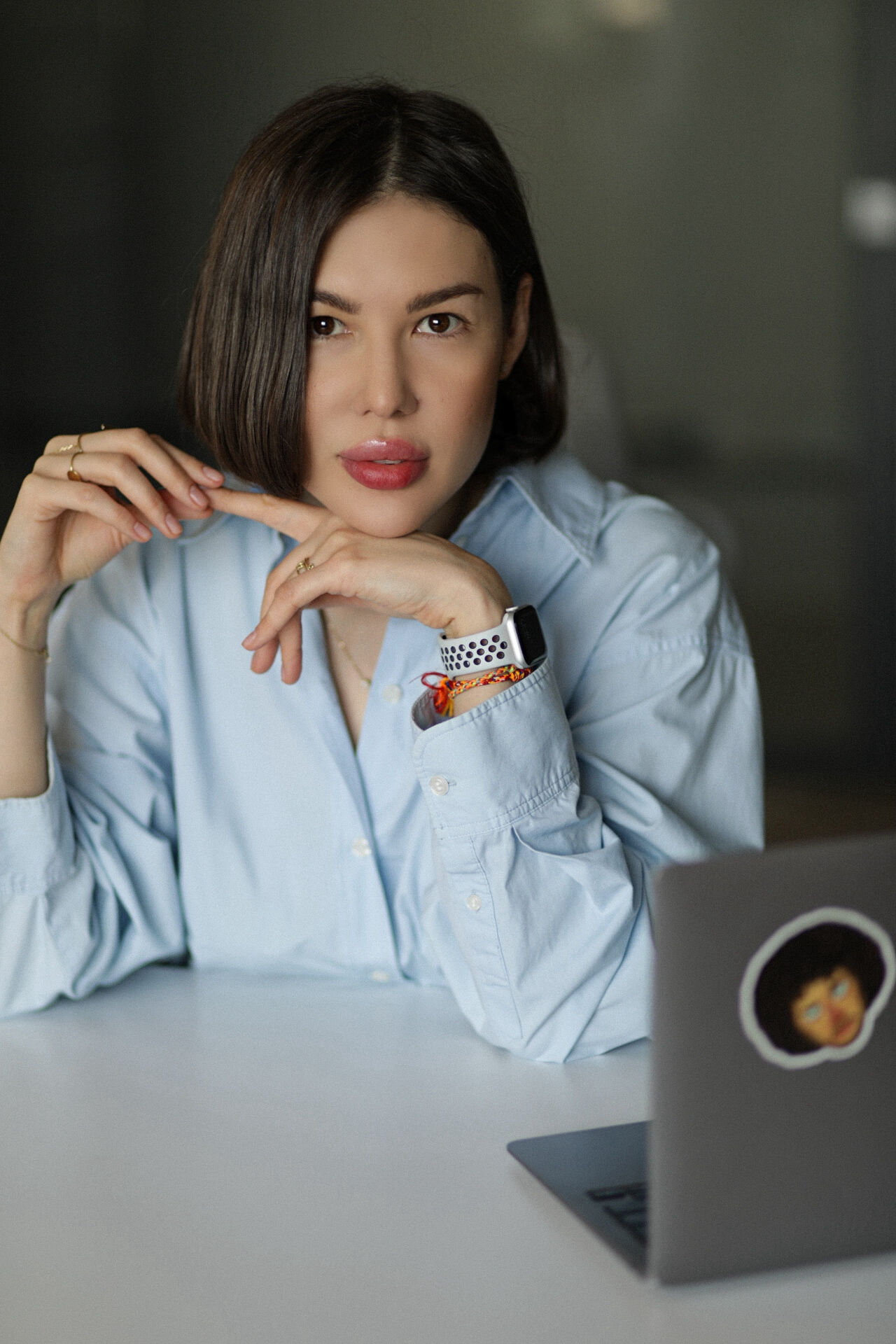
Tell us how you came to run a creative business.
"Synthesis" agency is now in its ninth year. Before starting my own business, I worked at two large agencies, primarily focused on media and branding. I began as a client relations manager.
Over time, I gained experience, climbed the career ladder, and developed a comprehensive understanding of the agency business and the advertising market. My own views on building teams, business processes, and principles of work and development began to form, often differing from those of my superiors. This led to the formation of my vision, and I was eager to try something different, to do things my way. At that time, I was driven by ambition and a desire for independence.
How is the creative business in Uzbekistan doing in general? Was it always this way?
Over the past three years, the advertising market in Uzbekistan has doubled, which is a positive development. Competition is growing, and as a result, brands are spending more on marketing, and new agencies are opening.
The growing market has significantly improved the quality of work. In just five years, Uzbek agencies have become competitive at international advertising festivals, competing with global industry representatives.
For instance, in 2019, we brought the first gold from the European Epica Awards to Central Asia. Back then, this seemed impossible. Local brands have been awarded for marketing effectiveness for two consecutive years, something unimaginable five years ago. Festivals and rankings make agencies more visible, helping them expand into other markets. Our agency is increasingly receiving inquiries from international clients from neighboring countries.
All these factors are undoubtedly driving the market.
In your opinion, what changes are coming to the creative business in Uzbekistan?
Previously, local clients didn’t fully understand the value of working with the advertising industry; it seemed strange to pay for something intangible—like strategy or ideas.
The creative industry is developing rapidly worldwide, and in Uzbekistan, there is also an understanding that the creative economy can yield substantial results, much like the IT sector. This is a highly profitable and effective business area, and it’s not just about advertising—it extends to other fields of intellectual activity such as fashion, film, music, and more.
Soon, Uzbekistan plans to adopt a law on the creative economy, which will undoubtedly contribute to the development of businesses in this segment.
Have you faced gender biases as a woman leading a business?
Of course, and unfortunately, quite often. Over nine years, I’ve encountered various situations. One of the most memorable: I recall how the chairman of one of the banks didn’t shake my hand during a meeting because he was taken aback by the situation—a woman and a handshake.
Often, it was difficult for men to imagine that a woman could create and manage a business. There were cases where people expressed a desire to speak with the founder and were surprised to learn that I was the founder of the company.
It’s important to note that I haven’t observed such cases for a long time now, as women’s entrepreneurship in Uzbekistan is developing rapidly, and fortunately, a woman in business no longer surprises anyone.
What has been the most challenging moment in your experience?
The most challenging moments were at the beginning, and they were all somehow related to the need to defend the interests of the business.
Girls are often raised to be accommodating and submissive. Society and the environment teach us from a young age to be obedient, sometimes even subservient. Unfortunately, we are not taught to assert our desires, rights, and needs, or to defend personal boundaries. Without the ability to properly protect personal boundaries, it was difficult to defend the interests of my own business. Thankfully, everything comes with experience.
What three things inspire you to keep moving forward?Endless curiosity about life.
The question "What if?". What will happen if we do this? What if we try something different?
Bold ideas—big and challenging goals energize me. I always need large and complex goals to keep me truly interested.
What is the most important advice you would give to women aspiring to lead their own businesses?
In 2022, I spent eight months as a mentor in a women’s entrepreneurship support program under the European Bank for Reconstruction and Development (EBRD). While working with female entrepreneurs, I noticed how prone we women are to self-doubt—much more so than men.
We are less decisive, more influenced by public opinion, more prone to anxiety and guilt, and more likely to undervalue ourselves and diminish our achievements. So, knowing our tendency to doubt ourselves, I believe the most important thing is to continue believing in yourself and your ideas.
What three skills are essential in your profession?
When it comes to the marketing and advertising industry, it's important to always be developing, possess flexible thinking, be capable of reflection and analysis, and have a keen interest in observing life, people, and processes, noticing certain patterns and nuances.
Does your choice of profession influence your personal life?
The industry I chose has undoubtedly made my life brighter and more interesting. Thanks to participating in advertising festivals, I have made close friends in different countries, people I likely would have never met otherwise. Due to the nature of marketing, which involves working with various business sectors, I now have good acquaintances in almost every industry, which is a satisfying realization.
“To infinity and beyond.” In Russian, this translates to “Бесконечность не предел” or “In infinity and even further”—a phrase from my favorite childhood cartoon, "Toy Story," that I’ve often repeated to myself throughout my life.
Nargiz Kamalova
Co-founder, Managing Partner, and CSD of the marketing agency “Lokals,” expert in marketing at the Business Woman entrepreneurship school
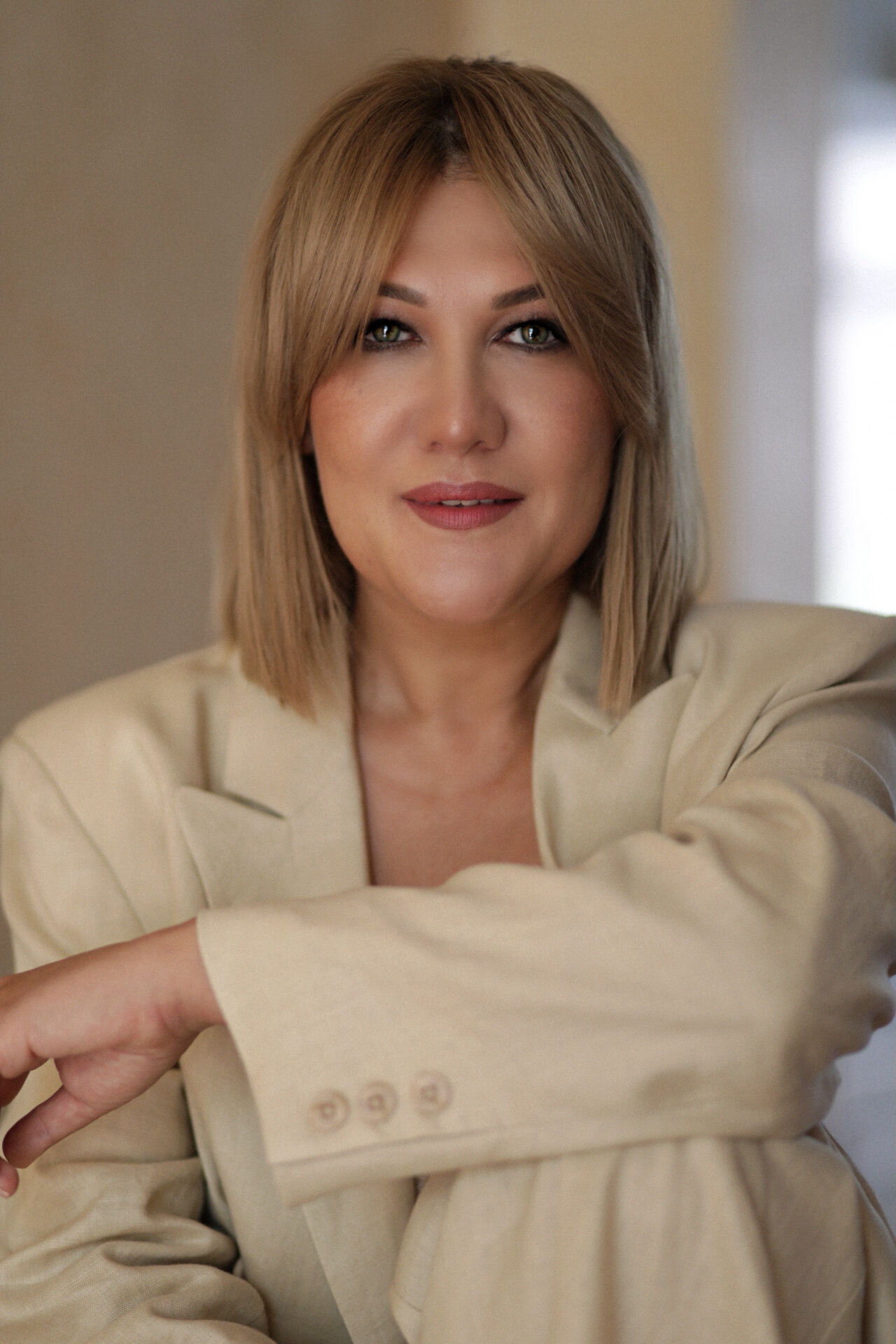
Tell us how you came to run a creative business.
I think it’s best to start with my journey to becoming a specialist. I don't think I have ever shared in an interview that, after successfully graduating from university, my first position was as an office manager. Back then, I didn’t even know how to send a fax, but such machines still existed at the time.
Gradually, I realized I could achieve more, but I lacked the relevant knowledge. This prompted me to take a course in the PMP program at the Uzbek-Japanese Center, which became a decisive step in my career.
After completing the course, I transitioned into marketing, where I worked for over ten years. I advanced from a marketing research assistant to a brand manager on the client side.
When you are constantly striving for more and realize that your current position doesn’t allow for rapid growth, opportunities arise that are impossible to refuse. One such opportunity was a partnership offer in the agency business from my friend Farhod Norbaev. After two minutes of thinking, I agreed, and we soon met in Almaty to discuss all the details and agreed on a clear division of responsibilities between us. Farhod took charge of strategic planning and creativity, while I focused on client service and management.
How is the creative business in Uzbekistan doing in general? Was it always this way?
The creative business in Uzbekistan has undergone significant changes in the past five years. In 2019, when we opened our agency, the market was just beginning to take shape. Local creative agencies specializing in strategy and creativity were almost non-existent. Today, the market has changed dramatically. The creative sector in Uzbekistan is rapidly developing and has become more ambitious.
Despite positive trends, some issues remain, such as the shortage of professional talent. The creative industry is constantly evolving, and agencies need to stay up-to-date with the latest trends to remain relevant and competitive. This requires flexibility and a readiness to adapt.
In your opinion, what changes are coming to the creative business in Uzbekistan?
In the coming years, the creative business in Uzbekistan will likely continue to develop in several key areas.
Interest in preserving cultural heritage and integrating it with modern creative approaches will grow. This could lead to the emergence of new forms of art, design, and media products that blend elements of traditional Uzbek culture with contemporary technologies and trends.
As in other countries, interest in sustainable and eco-friendly solutions is increasing. Agencies and brands may begin to incorporate sustainability principles into their projects.
With the growing number of internet users and the spread of smartphones, especially in the regions, demand for content in the Uzbek language will increase. This applies to media (news, entertainment programs, films) as well as educational and commercial content.
Have you faced gender biases as a woman leading a business?
Yes, I have encountered such situations, especially early in my career. I remember times when clients, seeing a woman in a leadership position, preferred to conduct business through men. These situations were initially unpleasant, but over time, I realized that confidence, professionalism, and results speak louder than any biases.
Today, I look back on those times with a smile, understanding that each of those situations only strengthened my character and helped me become better.
What has been the most challenging moment in your experience?
For me, a difficult situation is a type of crisis.
As my friend says, the word “crisis” in Chinese consists of two characters: “danger” and “opportunity,” symbolizing the idea that in any crisis, there are opportunities for resolution. This is true because I can’t recall a single difficult moment that wasn’t eventually resolved.
What three things inspire you to keep moving forward?
Knowing what you’re striving for and having a clear vision of your long-term and short-term goals. Seeing how your efforts change your life and business.
Tell us how you came to run a creative business.
I think it’s best to start with my journey to becoming a specialist. I don't think I have ever shared in an interview that, after successfully graduating from university, my first position was as an office manager. Back then, I didn’t even know how to send a fax, but such machines still existed at the time.
Gradually, I realized I could achieve more, but I lacked the relevant knowledge. This prompted me to take a course in the PMP program at the Uzbek-Japanese Center, which became a decisive step in my career.
After completing the course, I transitioned into marketing, where I worked for over ten years. I advanced from a marketing research assistant to a brand manager on the client side.
When you are constantly striving for more and realize that your current position doesn’t allow for rapid growth, opportunities arise that are impossible to refuse. One such opportunity was a partnership offer in the agency business from my friend Farhod Norbaev. After two minutes of thinking, I agreed, and we soon met in Almaty to discuss all the details and agreed on a clear division of responsibilities between us. Farhod took charge of strategic planning and creativity, while I focused on client service and management.
How is the creative business in Uzbekistan doing in general? Was it always this way?
The creative business in Uzbekistan has undergone significant changes in the past five years. In 2019, when we opened our agency, the market was just beginning to take shape. Local creative agencies specializing in strategy and creativity were almost non-existent. Today, the market has changed dramatically. The creative sector in Uzbekistan is rapidly developing and has become more ambitious.
Despite positive trends, some issues remain, such as the shortage of professional talent. The creative industry is constantly evolving, and agencies need to stay up-to-date with the latest trends to remain relevant and competitive. This requires flexibility and a readiness to adapt.
In your opinion, what changes are coming to the creative business in Uzbekistan?
In the coming years, the creative business in Uzbekistan will likely continue to develop in several key areas.
Interest in preserving cultural heritage and integrating it with modern creative approaches will grow. This could lead to the emergence of new forms of art, design, and media products that blend elements of traditional Uzbek culture with contemporary technologies and trends.
As in other countries, interest in sustainable and eco-friendly solutions is increasing. Agencies and brands may begin to incorporate sustainability principles into their projects.
With the growing number of internet users and the spread of smartphones, especially in the regions, demand for content in the Uzbek language will increase. This applies to media (news, entertainment programs, films) as well as educational and commercial content.
Have you faced gender biases as a woman leading a business?
Yes, I have encountered such situations, especially early in my career. I remember times when clients, seeing a woman in a leadership position, preferred to conduct business through men. These situations were initially unpleasant, but over time, I realized that confidence, professionalism, and results speak louder than any biases.
Today, I look back on those times with a smile, understanding that each of those situations only strengthened my character and helped me become better.
What has been the most challenging moment in your experience?
For me, a difficult situation is a type of crisis.
As my friend says, the word “crisis” in Chinese consists of two characters: “danger” and “opportunity,” symbolizing the idea that in any crisis, there are opportunities for resolution. This is true because I can’t recall a single difficult moment that wasn’t eventually resolved.
What three things inspire you to keep moving forward?
Knowing what you’re striving for and having a clear vision of your long-term and short-term goals. Seeing how your efforts change your life and business.
Sometimes it’s important to look back and see how much has already been achieved. Whether it’s a successful project, a satisfied client, increased revenue, or improved personal skills—it confirms that you are moving in the right direction.
The people around me. They could be colleagues, friends, or family who believe in me and offer support.
What is the most important advice you would give to women aspiring to lead their own businesses?
Starting a business requires a clear understanding of your goals and motivations, knowing that entrepreneurship is a challenging path. Mistakes are inevitable, but they are an important part of the process that makes us stronger and wiser.
The business environment is constantly changing, and it’s important to be ready to adapt to new circumstances by being flexible and quick to respond.
And, of course, only pursue something that brings you joy and inspiration. That’s what will keep you moving forward, even in difficult times.
What three skills are essential in your profession?
Strategic thinking and business orientation: the ability to make risky yet informed decisions and ensure the company’s growth.
Leadership and team management: the ability to inspire, motivate, and develop employees, as well as effectively coordinate the work of various departments.
Deep understanding of the industry and local market: knowledge of the nuances of the creative industry, as well as the cultural and economic factors influencing business in the region.
Does your choice of profession influence your personal life?
My choice to be an entrepreneur certainly affects my priorities. This doesn’t mean you have to completely give up your personal life, but the business does require constant attention and responsibility. It’s not a job with a fixed schedule: you can’t just “switch off” after the workday ends—thoughts about the business and decisions can arise at any time. In a way, the business becomes like your child, something you nurture, raise, love, and care for.
However, this doesn’t exclude the possibility of a personal life. I travel, meet with friends, and try to flexibly prioritize based on current circumstances.
“There is no limit to perfection.” There’s always room to become better, refine skills, deepen knowledge, and reach new heights. But it’s important not to let this pursuit turn into fanaticism because, in chasing perfection, one might miss the moments when it’s enough to do something well and then improve that process over time.
The people around me. They could be colleagues, friends, or family who believe in me and offer support.
What is the most important advice you would give to women aspiring to lead their own businesses?
Starting a business requires a clear understanding of your goals and motivations, knowing that entrepreneurship is a challenging path. Mistakes are inevitable, but they are an important part of the process that makes us stronger and wiser.
The business environment is constantly changing, and it’s important to be ready to adapt to new circumstances by being flexible and quick to respond.
And, of course, only pursue something that brings you joy and inspiration. That’s what will keep you moving forward, even in difficult times.
What three skills are essential in your profession?
Strategic thinking and business orientation: the ability to make risky yet informed decisions and ensure the company’s growth.
Leadership and team management: the ability to inspire, motivate, and develop employees, as well as effectively coordinate the work of various departments.
Deep understanding of the industry and local market: knowledge of the nuances of the creative industry, as well as the cultural and economic factors influencing business in the region.
Does your choice of profession influence your personal life?
My choice to be an entrepreneur certainly affects my priorities. This doesn’t mean you have to completely give up your personal life, but the business does require constant attention and responsibility. It’s not a job with a fixed schedule: you can’t just “switch off” after the workday ends—thoughts about the business and decisions can arise at any time. In a way, the business becomes like your child, something you nurture, raise, love, and care for.
However, this doesn’t exclude the possibility of a personal life. I travel, meet with friends, and try to flexibly prioritize based on current circumstances.
“There is no limit to perfection.” There’s always room to become better, refine skills, deepen knowledge, and reach new heights. But it’s important not to let this pursuit turn into fanaticism because, in chasing perfection, one might miss the moments when it’s enough to do something well and then improve that process over time."
photograph: Malikova Laziza
